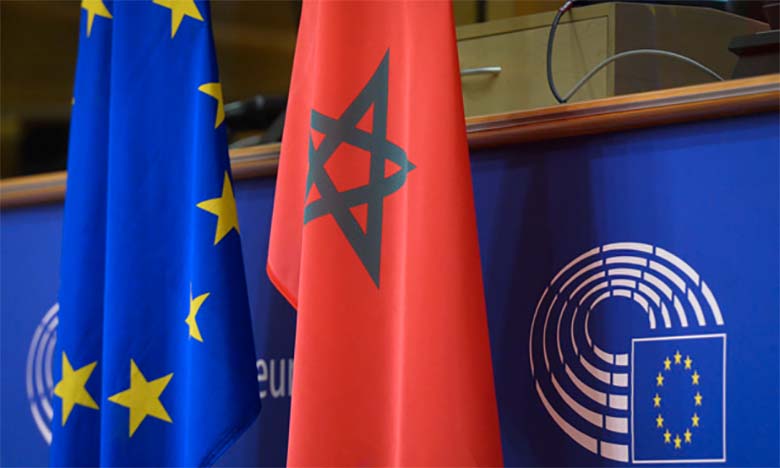The European Parliament continues its series of "attacks" on Morocco, in a way that raises many questions on the part of many observers, who wonder whether this attack is "innocent" or an intended campaign by parties disturbed by the many achievements made by the Kingdom of Morocco and the European Union.
Since the outbreak of the case, known in the media as "QatarGate", the European Parliament has strongly criticized and attacked Rabat, accusing Morocco of offering bribes to members of the European Parliament to defend its causes, and accusing Rabat of committing violations against human rights. In one of the reports, the European Parliament recalled the case of journalist Omar Radi, who is detained in Morocco in a sexual assault case.
Morocco alone without others
What raises the suspicions of a number of observers is that the European Parliament focuses on Morocco alone excluding other countries, especially on issues such as human rights and freedom of expression, although there are countries that have partnerships with the European Union, and there are clear indications of human rights violations in these countries, however, they are not addressed by the European Parliament.
The European Parliament accuses Morocco of attracting some members to defend its interests, while many observers consider that Morocco, like other countries, is working to defend its interests within the framework of its relations with its various European partners, which Rabat considers a "legitimate right" and also a right which is guaranteed for other countries. So why is Morocco accused of this aspect?
It should be noted that the European Parliament has addressed Morocco - alone - through 112 parliamentary questions since the beginning of the current legislative session, 18 draft amendments during the year 2022 alone, and 4 draft resolutions in 2022. In addition to two attempts to nominate people who, observers say, have nothing to do with Human rights, for the Sakharov Prize.
Disturbing achievements
Rabat considers that these recent attacks by the European Parliament are caused by some parties that are disturbed by the great rapprochement between Morocco and the European Union, especially since the two parties have signed many cooperation agreements and multiple partnerships.
By following the footsteps of this speech, it is already clear that Morocco and the European Union have made very great strides in many fields. There are agreements - for example, but not limited to - related to marine fishing, agriculture, air transport, and scientific research, as well as, achievements related to political and strategic documents, as a joint document on the advanced status of 2008, and the 14th meeting of the Association Council in 2019, and the Green Partnership in 2022.
The European Union, in turn, considers this relationship today as a model for the success of the European Southern Neighborhood Policy, as stated in the statements made by the High Representative of the European Union for Foreign Affairs and Security Policy, and Vice-President of the European Commission, Mr. Josep Borrell, at the beginning of this month during his visit to Morocco.
Morocco rejects blackmail
Morocco has repeatedly expressed its rejection of any "extortion" by any European party, and Moroccan officials have stressed in previous statements that the treatment between the two parties must be based on mutual respect and transparency.
Official Moroccan sources said that Morocco "has repeatedly insisted on strengthening the role of the Joint Parliamentary Committee, in order to avoid the interference of ill-intentioned parties in matters related to relations between Morocco and the European Union," adding that during this legislative mandate, "the Joint Parliamentary Committee took a long time to start its work, as a result of the procrastination of the European side.”
The same sources indicated that for Morocco, "strengthening the rules of transparency within the European Parliament is useful and crucial to avoid some abuses, such as the formation of a parliamentary group on "Western Sahara" - by the Polisario and Algeria - as well as the unjustified harassment of some members of the European Parliament towards Morocco without any interference from the European Parliament.
According to the same sources, Rabat considers that these pressures will not affect Morocco, but rather contribute to increasing national unity against these "extortions".
An official source from the Moroccan Foreign Ministry also criticized the intervention of the European Parliament and the exertion of pressure on a sovereign country, and the abuse of its judicial system, saying that "those who complain about the interference are in fact the heroes of this interference."






